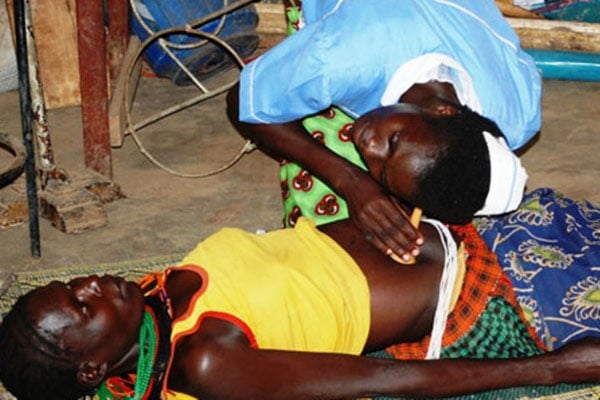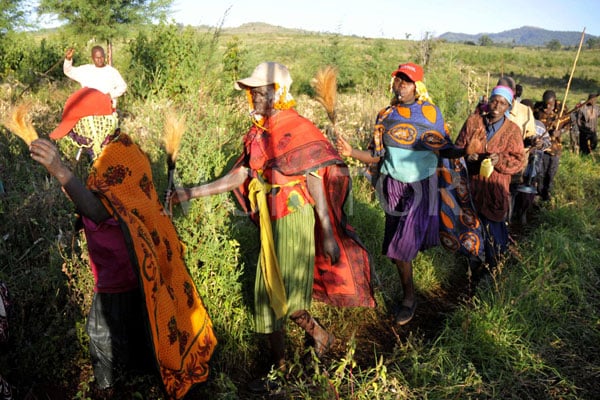Prime
Over 1,400 new-borns die in Lango - Records

A nurse examines an expectant mother at Apeitolim Health Centre II in Napak District. PHOTO/STEVEN ARIONG
What you need to know:
- The World Health Organisation (WHO), estimates that majority of all neonatal deaths (75 percent) occur during the first week of life, and about one million newborns die within the first 24 hours.
At least 1,417 newborns have died in Lango Sub-region, records from district health department indicate.
Data shows that 397 babies died within the first month in Oyam between July 2020 and June 2021.
Around the same period, Lira District lost 389 babies; Apac, 135; Kole, 114; Kwania, 122; Dokolo, 59; Alebtong, 77; Otuke, 42 and Amolatar lost 82 babies.
Also, 44 mothers of 74,143 that gave birth in the nine districts died during childbirth.
Dr Edmond Aceka, the Lira assistant district health officer in charge of maternal and child health, said 40 percent of the mothers who died were adolescent girls and young women.
The deceased were between 10 and 24 years old.
He attributed the maternal and child mortality to the increase in teenage pregnancies during lockdown, which was instituted to curb the spread of Covid-19.
“There was a high rate of child marriages in our community and this was just because of the poverty caused by the current situation. During the lockdown, many of our children who were supposed to be at school opted to get married when they were still young and this was due to poverty,” Mr Aseka told Daily Monitor last Wednesday.
He also blamed the increasing rate of teenage pregnancies and child marriages on poor parenting.
“There is a lack of support from cultural, religious and political leaders to embrace reproductive health services. Some of our religious leaders don’t even want to hear the word family planning; some political leaders don’t support it at all and this is a big challenge,” he said.
Dr Isaac Orech, the Chief Executive Officer of Youth at Work Development Initiative (YAWODI), an NGO, said they have set aside Shs4.5m to sensitise the youth on dangers of teenage pregnancies.
WHO
The World Health Organisation (WHO), estimates that majority of all neonatal deaths (75 percent) occur during the first week of life, and about one million newborns die within the first 24 hours.
The United Nations agency responsible for providing humanitarian and developmental aid to children worldwide, Unicef said the first 28 days of life – the neonatal period – is the most vulnerable time for a child’s survival.
“Children face the highest risk of dying in their first month of life at an average global rate of 17 deaths per 1,000 live births in 2020, down by 54 percent from 37 deaths per 1,000 in 1990,” the organisation said.
“In comparison, the probability of dying after the first month and before reaching the first birthday, it was estimated at 11 deaths per 1,000 and the probability of dying after reaching the first year and before reaching five years, it was estimated at nine deaths per 1,000 in 2020.
Globally, 2.4 million children died in the first month of life in 2020 – approximately 6,500 neonatal deaths every day – with about a third of all neonatal deaths occurring within the first day after birth, and close to three-quarters occurring within the first week of life.”




